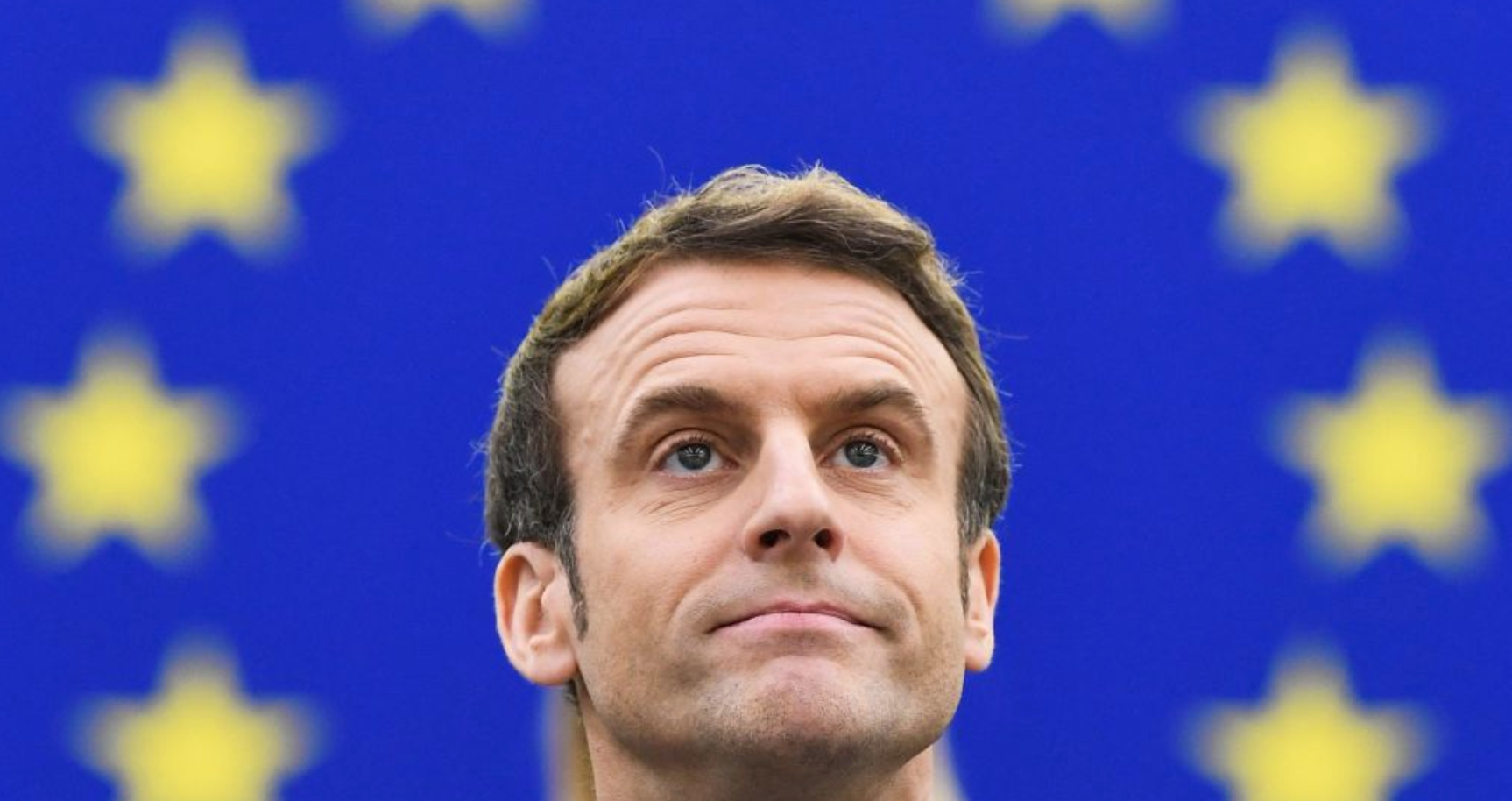In Beyond Good and Evil (1886), Friedrich Nietzsche mused on the possibilities of the Russian threat to unite Europe into a great civilisational power, beyond what he saw as the petty nationalisms of the day. Only the threat posed by “that monstrous empire in-between, where Europe, as it were, flows back into Asia,” he wrote, would allow European civilisation “to acquire one will… a protracted terrible will which would be able to project its goals millennia hence”, ending “the long drawn-out comedy of its petty states”.
Whatever his own Nietzschean qualities, Emmanuel Macron appears to agree. Always a civilisational thinker, endlessly returning to the idea of Europe as a great civilisational power standing between the fading American empire and the rising Chinese civilisation state, Macron’s new-found commitment to Ukraine’s European destiny seems to stand within this vein of thought.
In Kyiv yesterday, affirming that “Ukraine belongs to the European family,” and signalling France’s support for the country’s EU candidacy, Macron appeared to be gambling that a Ukraine absorbed into a European sphere would not be a brake on his long-held dream of strategic autonomy (as many commenters on the fringes of both Left and Right assume) but instead a catalyst, spurring a European industrial and defence renaissance.
In a little-noticed speech, Macron declared that Europe required a “wartime economy”, forcing the continental bloc to “invest more” and “act faster” to “recapitalize their armed forces” and “assist their partners”, a clear reference to Ukraine. Yesterday, rumours emerged that Macron has ordered the French defence company NEXTER to accelerate production of the CAESAR howitzers that are proving so useful, if in limited quantities, in the artillery battles of the Donbas. With 25% of France’s CAESAR stocks already pledged to Ukraine, Macron has demanded NEXTER shift towards a “war-time” production mode.
Yet Macron is likely correct in assuming that America’s inevitable turn to the Pacific, to defend its imperial hegemony from China, will force Europe to defend itself from its civilisational challengers. It is a point that the most perceptive figures in America’s strategic establishment, like Elbridge Colby, have long made, and Europeans ought best heed it, for all our sakes, before it is too late. Macron’s long-criticised ambivalence over Russia’s potential, as an industrial and defence giant, to both add muscle to an autonomous European project and to challenge its Enlightenment norms seems to have been discarded, at least for now.
Instead, he now seems to view Russia’s imperial dreams as a spur to develop Europe’s own civilisational mission in response, with Putin’s aggressive civilisation state acting as the perfect foil, or Other, against which a coherent, self-reliant Europe can be defined. It is a Realist vision at perfect odds with the American brand of Structural Realism that views Ukraine as part of Russia’s natural sphere of interest, a situation about which nothing can or should be done.
It is also a rejection of the view of Europe as an ineffectual “human rights superpower”, for so long the dream of Germany’s establishment. Macron understands the (apparently still controversial) reality that without hard power on your side to enforce them, human rights are not real: without overpowering military might, they are consoling legal fictions, which simply do not exist. As Zelensky’s advisor Mykhailo Podolyak commented on Twitter, “not everyone understands that the Russian Federation will not comply with any legal formats as long as there is an opportunity to take something from Europe by force”. The only true guarantor of human rights is sovereignty, and the capacity for self-defence.
Germany’s much-vaunted commitment to liberal human rights norms is mocked by the country’s military weakness. Unable even to fire its own artillery rounds, and unwilling to defend the human rights of Ukrainian civilians through weapons transfers, Germany subjects the entire continent to the will of harder, more aggressive powers.
As Nietzsche wrote, time would see “such an increase in the menace of Russia that Europe would have to resolve to become menacing” in response. As the most vocal advocate of Europe as a major power in its own right, Guy Verhofstadt declared, “Ukraine has earned its place at the heart of our European family”, adding significantly that, “Europe will be stronger with Ukraine as a member.” By employing Ukraine, cynically or not, as a rationale to rebuild the bloc’s own military might, Macron has moved Europe beyond empty ascriptions of good and evil into the hard world of force and power that will dominate the coming century.











Join the discussion
Join like minded readers that support our journalism by becoming a paid subscriber
To join the discussion in the comments, become a paid subscriber.
Join like minded readers that support our journalism, read unlimited articles and enjoy other subscriber-only benefits.
Subscribe